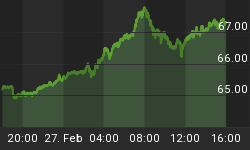Alphabet is shutting down the Google+ social network over the exposed data of half a million users since 2015, and last month, Facebook revealed that a system hack had compromised 50 million user accounts.
It’s a lot of honesty all of a sudden. It’s also a lot of honesty for tech giants who are really struggling to figure out how to maintain huge profits while simultaneously protecting the privacy of their users.
Google’s honesty came after an expose in the Wall Street Journal that pointed out the social media network had failed to disclose a bug that exposed their user data way back in March. Facebook’s hack disclosure was less delayed.
Google says its bug exposed user data (names, email addresses, occupations, genders, ages) but there was no evidence that it was exploited to steal or misuse the data. And now Google says it plans to expand privacy protections by giving users more control over their account data and over which information is shared with third-party apps.
Nor is it Google’s first run-in with social networking data breaches. Google Buzz, circa 2010, saw allegations of privacy policy violations and deception in how it got users to join the social network. That led to charges from Federal Trade Commission (FTC) and an $8.5-million settlement for a class-action suit against the company.
Few will mourn the loss of the Google+ network, which was a flash in the social networking pan; but the fact that Google failed to disclose the most recent incident rankles.
As Epic’s Marc Rotenburg told Wired, “We’re passed the point where Google should get to decide if Google has done enough to address a problem.”
Timing is of the essence for these tech giants. The writing is clearly visible on the wall—starting with strict new privacy laws in Europe and working their way to the U.S. State of California.
The corridors of tech power are certainly now worried that it won’t end in the sunshine state, and if they’re going to lose this privacy game, they’d rather lose it to the feds.
Related: Turning Wasted Natural Gas Into Bitcoin
Wired magazine calls it an “inherent contradiction” for big tech, but NPR points out the more interesting potential that big tech is actually lobbying for more privacy protection with the federal government.
Now, it’s about damage control and getting in front of what’s to come.
Speaking to NPR, Ernesto Falcon, legislative counsel at the Electronic Frontier Foundation, said big tech is trying to step in an control regulation at this point because it’s coming at them from multiple fronts.
"They don't want to entertain the possibility that they would liable to individuals for doing some sort of harm from all the data that they collect," NPR quoted Falcon as saying.
NPR also cited two unnamed sources with knowledge of a May board meeting of a Silicon Valley trade association as saying that Facebook’s top lobbyist, Joel Kaplan, warned of the threat of the California privacy law snowballing into a bigger problem even that Europe’s new GDPR (General Data Protection Regulation).
If you can’t beat ‘em, join ‘em: It now may be in big tech’s interest to give up the fight and start lobbying to get a say in federal privacy legislation that could trump anything the states start coming up with.
By Michael Kern for Safehaven.com
More Top Reads From Safehaven.com:
















